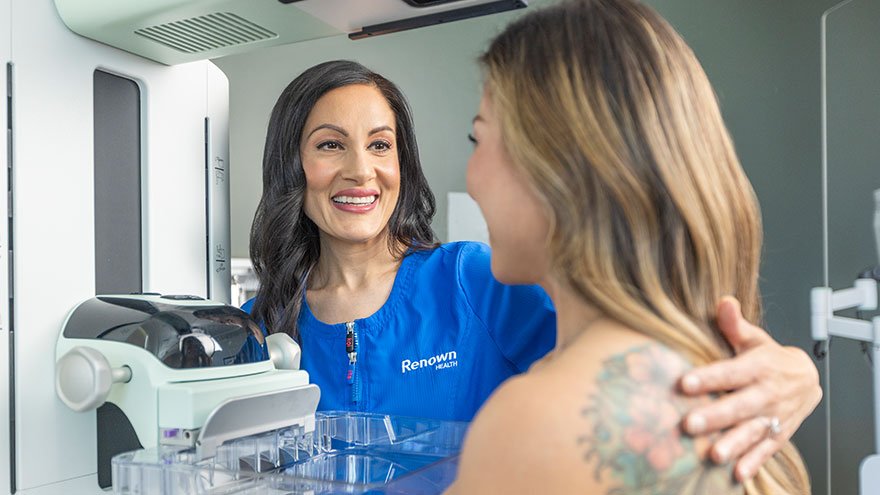
Colorectal Cancer

Colorectal Cancer Screening & Prevention
Call for more information: 775-982-4000
Colorectal cancer is the second-deadliest cancer in the United States, partly because it often goes undiagnosed. Polyps can develop in the colon or rectum and become malignant without presenting any symptoms. Therefore, knowing and addressing your risk factors and undergoing the recommended screenings is crucial. Colorectal cancer affects both men and women. Even if you have no personal or family history of colon cancer, ask your doctor about colorectal risk factors and when to start screening. With regular screening, colorectal cancer is easily detectable and treatable.
Risk Factors and Tests
- People over the age of 45 are most at risk.
- Colorectal cancer is more common in African Americans and Jews of Eastern European (Ashkenazi) descent. Therefore, people of these ethnicities should be screened by age 45.
- Colorectal cancer is more common in patients who have already been diagnosed with colorectal cancer, polyps, Crohn’s disease, ulcerative colitis or long-term inflammatory bowel disease (IBD).
- The likelihood of developing colorectal cancer is higher in people with a family history of colorectal cancer or adenomatous polyps. Discuss screening with your doctor. You may require earlier and more frequent screening.
- Lynch syndrome is a genetic condition that increases the risk of digestive tract cancers, gynecologic tract, and other organs. In addition, people who have Lynch syndrome have a significantly increased risk of developing colorectal cancer.
- Rare genetic conditions like familial adenomatous polyposis (FAP) also increase a person's risk of colorectal cancer.
- Overweight people are more likely to develop colorectal cancer.
- Diets high in red meats and processed meats lead to an increased risk of colorectal cancer, while diets high in fruits and vegetables can lower the risk of colorectal cancer.
- Exercise might help lower the risk for colorectal cancer.
- Smokers are more likely to develop colorectal cancer than non-smokers.
- Men who have more than two alcoholic drinks per day and women who have more than one alcoholic drink per day increase their chances of developing colorectal cancer.
- Renown Health recommends a formal colorectal cancer risk assessment if you are 50 or older or meet other risk factors.
What to Know About Colonoscopy Screenings
- Colonoscopy is the most common way to screen for colorectal cancer.
- A doctor uses a thin, flexible tube with a light and camera to examine your entire colon.
- Polyps or problem areas can be detected and removed during the procedure.
Preparing for the Procedure
- To get a clear view, your colon must be completely empty.
- Your doctor will provide prep instructions, usually including:
- Taking a laxative
- Drinking only clear liquids
- Fasting for 24 hours before the procedure
- Prep is often considered the most unpleasant part, but it’s crucial—improper prep may lead to rescheduling.
During and After the Exam
- A sedative is given to help you relax and sleep during the procedure.
- Afterward, your doctor will review the results with you.
Screening Guidelines
- Start at age 50: Most adults should get a colonoscopy every 10 years.
- After 76: Talk to your doctor—they’ll consider your health and screening history before recommending further exams.
The FIT (Fecal Immunochemical Test) Test is a simple, at-home colorectal cancer screening kit that you can complete in the privacy of your own home. FIT Tests are pain-free, require no dietary or medication restrictions, and are completed in about 10 minutes. Completion involves:
- Collecting a stool sample.
- Placing it on a test card or tube.
- Returning it to the doctor's office.
Your insurance may cover FIT Tests. Please talk with your insurance provider to see if the FIT Test is covered.
Lynch Syndrome Testing






